In addition to our Shelf Awareness Best Books of 2015, we asked our reviewers to select a few of their personal favorite books of the year. They're an eclectic bunch, and their picks are, too. We'll start with nonfiction; our next issue will reveal their fiction choices.
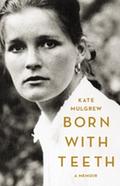 After seeing young Kate Mulgrew recite poetry in a school program, her mother suggested that she choose whether she wanted to be "a mediocre poet or a great actress." Mulgrew's engaging memoir, Born with Teeth (Little, Brown, $28), highlights her acting career and offers a fine introduction to the writer she might have been instead. --Florinda Pendley Vasquez
After seeing young Kate Mulgrew recite poetry in a school program, her mother suggested that she choose whether she wanted to be "a mediocre poet or a great actress." Mulgrew's engaging memoir, Born with Teeth (Little, Brown, $28), highlights her acting career and offers a fine introduction to the writer she might have been instead. --Florinda Pendley Vasquez
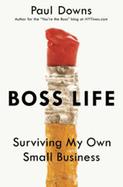 In Boss Life: Surviving My Own Small Business (Blue Rider, $26.95), Paul Downs offers an intriguing and deeply personal behind-the-scenes look at one challenging year in the life of an independent furniture designer and manufacturer. There is fierce honesty in this chronicle of the challenges faced by a craftsman who had to learn how to be boss, small businessman, salesman, accountant and more. --Robert Gray
In Boss Life: Surviving My Own Small Business (Blue Rider, $26.95), Paul Downs offers an intriguing and deeply personal behind-the-scenes look at one challenging year in the life of an independent furniture designer and manufacturer. There is fierce honesty in this chronicle of the challenges faced by a craftsman who had to learn how to be boss, small businessman, salesman, accountant and more. --Robert Gray
Chasing the Scream (Bloomsbury USA, $27) is Johann Hari's study of the history of the war on drugs, written with a journalistic eye for detail and storytelling that makes this convoluted tale surprisingly easy to read. It's an eye-opening book that will not only change opinions, but prove an important part of the conversation on the war on drugs--and its lasting consequences--in years to come. --Kerry McHugh
Seeking fulfillment, or happiness, or at least some answers to questions she isn't sure she knows how to ask, Jessa Crispin chose to sell all of her possessions and move to Europe, studying those before her who had scrapped their conventional lives in favor of a blank slate. The Dead Ladies Project (Univ. of Chicago, $16 paperback) is part memoir, part travel writing, part literary criticism, all of which combine into an astounding work exploring what it means to live one's best life. --Kerry McHugh
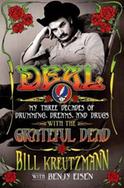 Deal: My Three Decades of Drumming, Dreams, and Drugs with the Grateful Dead by Bill Kreutzmann (St. Martin's Press, $27.99): Kreutzmann's storytelling and prose are a little like his drumming: creative, energetic, and exuberant. Oh, and he's very funny too. If he doesn't remember something exactly, he makes it up well enough that it seems the cold truth. Among the shelves of Dead books, this is easily among the finest. --Bruce Jacobs
Deal: My Three Decades of Drumming, Dreams, and Drugs with the Grateful Dead by Bill Kreutzmann (St. Martin's Press, $27.99): Kreutzmann's storytelling and prose are a little like his drumming: creative, energetic, and exuberant. Oh, and he's very funny too. If he doesn't remember something exactly, he makes it up well enough that it seems the cold truth. Among the shelves of Dead books, this is easily among the finest. --Bruce Jacobs
Susan Cheever has written a riveting, well-conceived take on the history--good and bad--of one of America's favorite pastimes in Drinking in America: Our Secret History (Twelve, $28). --Kathleen Gerard
Two of our reviewers chose the much-lauded H Is for Hawk by Helen Macdonald (Grove Press, $26):
How many books can be shelved in nature, memoir and/or biography? Helen Macdonald's poetic story of raising a goshawk includes scientific details on the fierce bird, her academician's revelations on another falconer, T.H. White, and her personal struggle after her father's death. --Cheryl Krocker McKeon and Alex Mutter
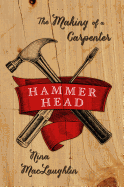 Hammer Head (W.W. Norton, $24.95) is a lyrical, wise, plainspoken memoir by writer-turned-carpenter Nina McLaughlin that resonated deeply with me. I loved MacLaughlin's descriptions of tools and construction materials (both as physical objects and as an extended metaphor for living), and her thoughtful account of building (and rebuilding) a worthwhile life. --Katie Noah Gibson
Hammer Head (W.W. Norton, $24.95) is a lyrical, wise, plainspoken memoir by writer-turned-carpenter Nina McLaughlin that resonated deeply with me. I loved MacLaughlin's descriptions of tools and construction materials (both as physical objects and as an extended metaphor for living), and her thoughtful account of building (and rebuilding) a worthwhile life. --Katie Noah Gibson
It's Not Over: Getting Beyond Tolerance, Defeating Homophobia, and Winning True Equality by Michelangelo Signorile (Houghton Mifflin Harcourt, $27) is a fiery, compelling reminder that full civil rights for LGBT people still requires action, and Signorile provides an empowering map for the future. --Kevin Howell
Stitched like a tapestry of Patti Smith's dreams and memories, M Train (Knopf, $25) eschews the structure of the traditional memoir for a series of interstitial moments, from cups of coffee to overseas trips. Every pause is as luxuriant as a square of sunlight on an oriental rug. --Linnie Greene
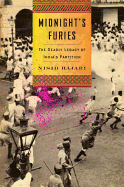 As Britain prepared to relinquish control of India, political rivals Jawaharlal Nehru of the Hindu majority and Muhammad Ali Jinnah of the Muslim minority sparked conflict across the newly independent subcontinent. In Midnight's Furies: The Deadly Legacy of India's Partition (Houghton Mifflin Harcourt, $28), Nisid Hajari carefully details the politics that led to one of history's bloodiest civil wars. --Dave Wheeler
As Britain prepared to relinquish control of India, political rivals Jawaharlal Nehru of the Hindu majority and Muhammad Ali Jinnah of the Muslim minority sparked conflict across the newly independent subcontinent. In Midnight's Furies: The Deadly Legacy of India's Partition (Houghton Mifflin Harcourt, $28), Nisid Hajari carefully details the politics that led to one of history's bloodiest civil wars. --Dave Wheeler
My Southern Journey: True Stories from the Heart of the South by Rick Bragg (Oxmoor House, $27.95): In essays that read like short stories, Bragg describes, critiques and celebrates the South: its flavors, customs and geography. These tales are variously funny, mouthwatering and heartfelt, and will make readers from all over feel homesick. --Julia Jenkins
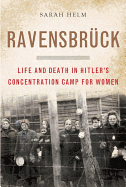 Sarah Helm's Ravensbrück: Life and Death in Hitler's Concentration Camp for Women (Nan A. Talese, $37.50) is a historical biography of a women's concentration camp opened by the Nazi regime in 1939. The detailed research and narrative telling make this book an exceptional read. Helm illuminates a part of history that stays with readers long after they have finished reading. --Justus Joseph
Sarah Helm's Ravensbrück: Life and Death in Hitler's Concentration Camp for Women (Nan A. Talese, $37.50) is a historical biography of a women's concentration camp opened by the Nazi regime in 1939. The detailed research and narrative telling make this book an exceptional read. Helm illuminates a part of history that stays with readers long after they have finished reading. --Justus Joseph
Schubert's Winter Journey: Anatomy of an Obsession by Ian Bostridge (Knopf, $29) was chosen by two reviewers:
English tenor Bostridge shares his passion for Schubert's "Winterreise," a stunning 24-song cycle for voice and piano that continues to have a profound effect on audiences today. His book, which is much more than a beautifully crafted (in every sense of the term) companion piece, reflects the diverse interests and singular obsession of a world-class singer and Oxford University-trained historian. --Robert Gray and Justus Joseph
In September 1906, the New York Zoological Gardens (now the Bronx Zoo) exhibited a man known as Ota Benga in its Monkey House. Heralded as a cannibal and pygmy found in the jungles of the Congo, Benga was gawked at by hordes of onlookers and even put in a cage with an orangutan. With Spectacle: The Astonishing Life of Ota Benga (Amistad, $25.99), using previously overlooked primary documents and other sources, journalist Pamela Newkirk demolishes the longstanding myth that Benga was anything but exploited. --Alex Mutter
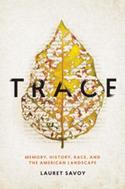 Lauret Savoy's incisive Trace: Memory, History, Race and the American Landscape (Counterpoint Press, $25) crosses boundaries to "re-member" disconnections in human experience and the history of the land itself. "The American landscape is palimpsest. Layers upon layers of names and meanings lie beneath the official surface," she writes. "Yes, I am palimpsest, too, a place made over but trying to trace back." --Robert Gray
Lauret Savoy's incisive Trace: Memory, History, Race and the American Landscape (Counterpoint Press, $25) crosses boundaries to "re-member" disconnections in human experience and the history of the land itself. "The American landscape is palimpsest. Layers upon layers of names and meanings lie beneath the official surface," she writes. "Yes, I am palimpsest, too, a place made over but trying to trace back." --Robert Gray
In her powerful little book The Tyranny of the Meritocracy: Democratizing Higher Education in America (Beacon Press, $24.95), Lani Guinier rejects the definition of merit by test scores and argues for proven educational reforms that could give all students the tools to build a truly democratic society. --Sara Catterall
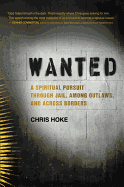 Wanted: A Spiritual Pursuit Through Jail, Among Outlaws, and Across Borders (HarperOne, $25.99): This thought-provoking first work from Chris Hoke makes readers laugh out loud on one page and wipe away tears of heartache on the next. It's a passionately written, intimate look into the U.S. penal system by a man with a special perspective. --Jen Forbus
Wanted: A Spiritual Pursuit Through Jail, Among Outlaws, and Across Borders (HarperOne, $25.99): This thought-provoking first work from Chris Hoke makes readers laugh out loud on one page and wipe away tears of heartache on the next. It's a passionately written, intimate look into the U.S. penal system by a man with a special perspective. --Jen Forbus
Weather events have a natural dramatic arc that, when associated with people and places, leads to compelling narrative. In What Stands in a Storm: Three Days in the Worst Superstorm to Hit the South's Tornado Alley (Atria Books, $25), Kim Cross chronicles the impact of some of the 62 tornadoes that struck Alabama and Mississippi on April 27, 2011, a day of nearly 300 outbreaks. --Florinda Pendley Vasquez
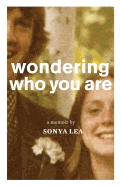 Following her husband's traumatic brain injury, Sonya Lea records their lives and challenges with joy and wonder, horror and resentment, commitment and love. Her memoir, Wondering Who You Are (Tin House, $15.95 paperback), is painful, wise and beautifully written. --Julia Jenkins
Following her husband's traumatic brain injury, Sonya Lea records their lives and challenges with joy and wonder, horror and resentment, commitment and love. Her memoir, Wondering Who You Are (Tin House, $15.95 paperback), is painful, wise and beautifully written. --Julia Jenkins
With her essays in Why Not Me? (Crown Archetype, $25), Mindy Kaling, an ethnic woman in a powerful position in an industry that's tough on females of any color, imparts witty, sage advice on gaining confidence and conquering self-hatred. Her title sums it up: Why can't any of us be anything we want to be? --Elyse Dinh-McCrillis
If literature is a lens through which to see the world, Joni Tevis's essays in The World Is on Fire: Scrap, Treasure, and Songs of Apocalypse (Milkweed Editions, $16) are the kind of high-powered magnifiers that can singe. Political and personal, gentle and brash, they contain multitudes. --Linnie Greene

